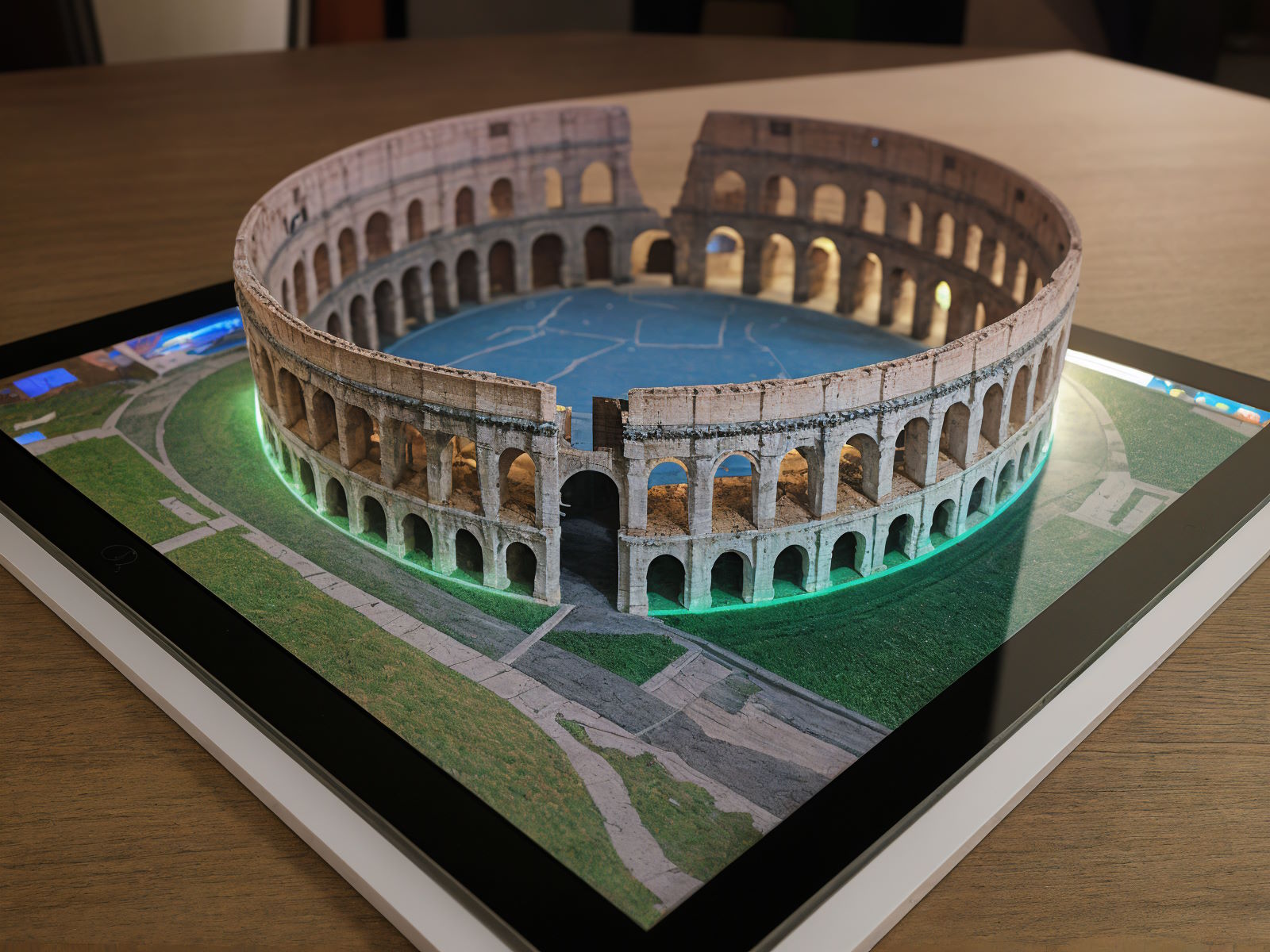
Holobook presentation at NextTech Innovations press conference
Universe MM0IU1: SAN FRANCISCO, Oct 12, 2023 - Gone are the days of hefty textbooks, lost notes, and scribbled margins. Enter the Holobook: the first fully immersive holographic textbook that promises to revolutionize the educational landscape.
Developed by NextTech Innovations, a Silicon Valley-based tech startup, the Holobook looks like a sleek tablet at first glance. But with a single touch, it projects 3D interactive holograms, bringing textbook content to life like never before.
"We wanted to create a tool that transcends traditional learning boundaries," says Sofia Ramirez, Chief Product Officer at NextTech Innovations. "Imagine reading about the Roman Colosseum and then having it rise in front of you, allowing you to explore its interiors or watch a gladiator match. With the Holobook, history, science, art, and more are no longer confined to pages."
Students can interact with these holograms, rotate them, zoom in, or dissect parts as required. Chemistry students can visualize complex molecules, future architects can walk through structures they design, and literature enthusiasts can watch Shakespearean plays acted out on their study desks.
Moreover, the Holobook is adaptive. It tracks a student's progress, understanding where they face challenges, and adjusts content accordingly. Struggling with calculus? The Holobook might introduce more visual examples or slow down the pace.
The device also offers collaborative features. "Study groups can link their Holobooks together, allowing for a shared holographic experience. This way, discussions become more immersive and engaging," explains Ramirez.
Educational institutions are already showing immense interest. "The implications for remote learning are monumental," says Dr. Raymond Hughes, Dean at San Francisco's Institute of Technology. "We can have students from around the world virtually 'sitting' in the same room, discussing a holographic artifact or phenomenon."
However, it's not all smooth sailing. Critics argue that while the Holobook might be an innovative tool, it could widen the digital divide, especially in regions where even basic internet is a luxury. Ramirez acknowledges this concern but highlights their partnership with global NGOs to ensure that Holobooks reach the most underserved schools at subsidized rates.
As NextTech prepares for its official consumer launch next spring, the world watches closely. Will the Holobook replace traditional textbooks? It's too early to predict. However, one thing is certain: education technology has taken a giant leap forward.
Parents, students, and educators are keenly awaiting the day when a whole library can fit into their backpacks – not as a collection of eBooks, but as a universe of interactive, immersive experiences. The future of learning, it seems, is not just digital, but holographic.